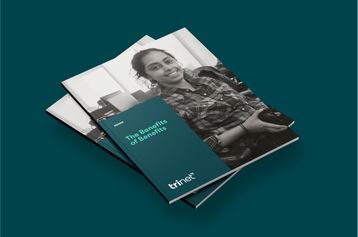
Quick Overview: Having Two Health Insurances at the Same Time
It’s possible to have more than one health insurance plan, but coordination rules determine which plan pays first and how costs are shared.
Why It Happens: People may have two plans through their own employer and a spouse’s, or through Medicare and a retiree plan.
Primary vs. Secondary: One insurer pays first (primary) and the other pays second to cover costs the first doesn’t.
Benefit Limits: Dual coverage doesn’t double benefits but can reduce out-of-pocket costs when rules are used correctly.
Coordination Rules: Insurance coordination guidelines, like those from the group plans or Medicare, determine payment order.
Knowing how carriers coordinate benefits helps employees get the most from multiple plans.
How Dual Health Insurance Coverage Works
Can you have two health insurances? The short answer is yes, you can, and many people do. According to the U.S. Census Bureau, about 43 million people have more than one medical insurance plan. That’s about 13% of the population (of the rest, 79% had a single plan, and 8% had none). About half of Americans 65 and older have multiple health plan coverages due to Medicare supplementation.
Business managers and HR leaders should understand how health insurance works when an employee has two plans. This article will discuss common reasons for having primary and secondary insurance plans, the pros and cons of dual coverage, and how coverage is allocated between the plans.
Common reasons for having two health insurances
These are some common situations in which people have two plans:
- A married person has health insurance from their employer and is also on their spouse’s insurance plan.
- A student younger than 26 has a health insurance plan from their school and is also covered on their parent’s plan.
- A child of divorced or separated parents is covered on both of their parents’ plans.
- Someone 65 or older has Medicare or is covered by Medicaid.
- Someone has both Medicaid and private insurance.

Make benefits work for you and your employees.
Download our eGuide: The Benefits of Benefits.
Pros and cons of having two health insurance policies
The advantage of having two health insurance plans is that they cover more medical costs and out-of-pocket expenses than a single plan. The primary insurance plan may cover what the second plan does not. The secondary health insurance plan may cover the copays, deductibles and coinsurance of the first plan.
The disadvantages of multiple health insurance plans include paying separate premiums and deductibles, complicated filing procedures, and reimbursement delays.
How dual health insurance coverage works
Having two health insurance plans doesn’t mean the insured gets twice the benefits. The most they can get from the health insurance policies combined is 100% of their medical expenses.
The way it works is that one plan is designated as primary insurance and the other as secondary. A claim goes first to the primary insurance plan, which pays medical bills the way it normally would. It is only after the primary insurer pays the claim that it gets submitted to the secondary plan.
How do you determine which plan is primary?
The health insurance companies, not the insured employees, decide which are considered the primary and secondary plans. When there are multiple health insurance policies, the companies follow the coordination of benefits (COB) model guidelines developed by the National Association of Insurance Commissioners. There may be differences in the ways that some states and insurance companies make assignments. However, many rules are generally agreed upon.
For example, if someone has a plan from their employer and is also covered on their spouse’s plan, their plan is considered primary. The plan on which they are a dependent is considered secondary insurance. Medicare plans are usually primary, and Medicaid is usually secondary. COBRA continuation coverage is secondary.
An insurance company should include information about its coordination of benefits in its policy documents.
Tips for filing claims with multiple health insurance policies
These tips help make the process of working with dual coverage go more smoothly:
Review the information on COB in the plans’ documents.
Notify both insurance companies about the existence of the separate health insurance plans.
Inform your doctors and other medical providers about your dual coverage.
After the primary claim is processed for covered health expenses, you’ll receive an explanation of benefits (EOB). File a claim with the secondary plan and provide them with a copy of the EOB.
Keep track of your out-of-pocket costs and medical coverage reimbursements and check it all for accuracy.
The birthday rule
The birthday rule applies when a child is covered by both parents. It states that the primary plan belongs to the parent whose birthday comes first during the calendar year. If the parents share the same birthday, the one with the longest-running is the primary plan.
Multiple plans for dental and vision health coverage
The most common dual-coverage situation is one in which someone is covered by two medical insurance plans. It’s also possible to have two dental plans or two vision plans if an employee is covered by their plan and also their spouse’s. When this happens, coordination of benefits works the same way as with two medical plans. One plan is designated primary, the other secondary, and the secondary plan takes effect after the primary has paid.
Get help with employee benefits
As an employer, you know how important it is to your employees to have good health insurance coverage. Small companies can't always offer the best in employer-sponsored health insurance on their own. TriNet can help. Our PEO services give small businesses access to many of the same health insurance plans and benefits options that big companies enjoy. To learn more about TriNet's HR, payroll and benefits services and solutions, speak with a knowledgeable representative today.
Table of contents
- 1.How Dual Health Insurance Coverage Works
- 2.Common reasons for having two health insurances
- 3.Pros and cons of having two health insurance policies
- 4.How dual health insurance coverage works
- 5.How do you determine which plan is primary?
- 6.Tips for filing claims with multiple health insurance policies
- 7.The birthday rule
- 8.Multiple plans for dental and vision health coverage
- 9.Get help with employee benefits






